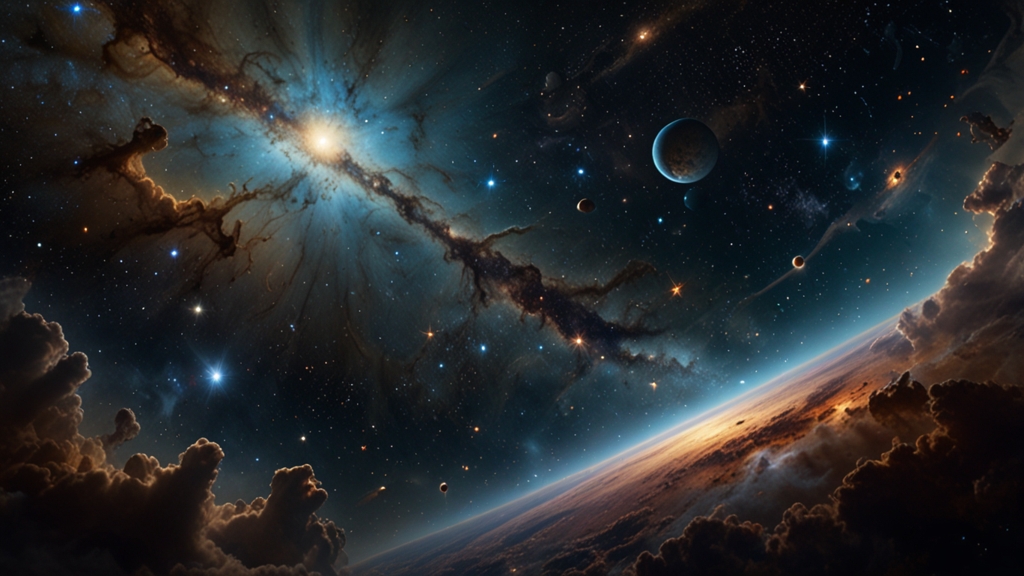Metaphysics and the Universe: Are We Just Stardust With a Purpose?
Metaphysics, a branch of philosophy that delves into the fundamental nature of reality and existence, often brings us face-to-face with some of the most profound questions about our universe and our place within it. One such tantalizing question is whether we humans are merely stardust or if there's a deeper, inherent purpose to our existence. In exploring this question, we are not only looking at the material components that make us up but also at the philosophical implications of our being.
The Stardust Connection
The phrase "we are stardust" is not just poetic but is also scientifically accurate. The elements that constitute our bodies — carbon, nitrogen, oxygen, and other essential elements — were forged in the cores of ancient stars. When these stars exhausted their nuclear fuel and erupted in supernovae, they scattered these elements across the universe. Eventually, this stardust clumped together to form new stars, planets, and eventually, life on Earth.
In this sense, our physical connection to the universe is profound and undeniable. Every atom in our body was once part of a star. This connection raises an interesting question: if materialistically, we are stardust, does that mean our significance is purely physical, incidental, and devoid of any larger purpose?
Metaphysical Perspectives
Metaphysics offers various perspectives on whether our existence transcends our stardust composition. Some schools of thought propose that humans have an inherent purpose bestowed by a higher power or universal consciousness. Others argue that meaning and purpose are constructs that we derive from our experiences and intellect, rather than intrinsic properties of the universe.
Theological Interpretations
"The cosmos is within us. We are made of star-stuff. We are a way for the universe to know itself." - Carl Sagan
Theological perspectives often posit that there is a divine plan or purpose to the universe, with humans playing a crucial role. This could range from the idea of being caretakers of the Earth to seeking enlightenment and spiritual growth. Many theological traditions assert that while we are made of physical material, our consciousness or soul adds a layer of purpose that stardust alone cannot account for.
Scientific Views
From a scientific viewpoint, one could argue that purpose is an emergent property. While the universe may have started with randomly distributed particles of stardust, the complexities of chemistry and biology have led to the evolution of conscious beings capable of introspection and action. This evolutionary perspective suggests that while our origins are indeed cosmic, our actions and decisions render our existence meaningful.
"The nitrogen in our DNA, the calcium in our teeth, the iron in our blood, the carbon in our apple pies were made in the interiors of collapsing stars. We are made of starstuff." - Carl Sagan
Philosophical Explorations
Philosophers often dive deeper into the question of purpose, considering not just our material origins but also the nature of consciousness and agency. Existentialists, for example, argue that life has no inherent meaning except what we choose to give it. This school of thought suggests that our stardust origins are simply the stage upon which we create our own purpose through freedom of choice.
Conclusion
The question of whether we are just stardust with a purpose remains one of the most engaging and complex inquiries in metaphysics. While our physical makeup undeniably ties us to the cosmos, the meaning and purpose of our existence might not be purely scientific or materialistic. Whether seen through a theological lens, scientific gaze, or philosophical scrutiny, the interplay between our cosmic origins and our quest for purpose offers endless avenues for exploration and understanding.
In the end, perhaps the most fulfilling answer is a synthesis of these perspectives — acknowledging our stardust origins while actively seeking and possibly creating meaning and purpose in our lives.










